
Peter Trudgill
06 December 2023
The United States of East Anglia

New England has many place names that must have been taken across the North Atlantic by homesick English people in the 1600s
Read the full article29 November 2023
The land of one direction

Small islands have evolved vocabularies based on topography – including one place where you can go ‘east’ while heading west
Read the full article22 November 2023
The fine art of having a dekko

English has a number of words borrowed from Urdu-Hindi, many of which arrived when British Indian Army soldiers returned to ‘Blighty’
Read the full article15 November 2023
Masters of a remote outpost

The adventures of one carpenter and several British soldiers helped English become the native language on two isolated islands
Read the full article08 November 2023
A pightle fight about dialect

This term for house or property might sound like it belongs to one region – but like many others, it’s in use across England
Read the full article01 November 2023
Mexico’s call of the cowboy

How the raising of cattle by a mixture of Mexicans, African-Americans and Americans gave rise to a distinctive vocabulary
Read the full article18 October 2023
Discovery and disgrace: the tragedy of Taino
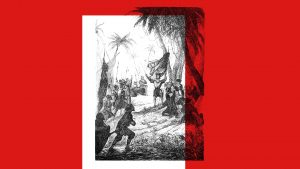
After Columbus made landfall in the Bahamas in 1492, as many as 40,000 Taino natives were enslaved in the Caribbean
Read the full article11 October 2023
A brief case for Americanisms

Many of us now use words imported from across the pond, like ’truck’ instead of ’lorry’. But the traffic isn’t only one-way...
Read the full article04 October 2023
The name of ABBA’s game

In parts of Sweden and Finland, the practice of changing your surname to make it sound more learned goes back to the 1600s
Read the full article27 September 2023
America’s slow path to English

The Dutch language survived in North America for many decades after the English had taken control of the formerly Dutch-controlled area
Read the full article20 September 2023
Our pet names for dicky birds
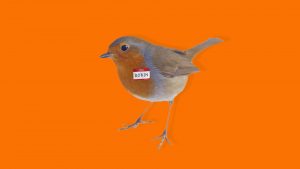
The official titles of our feathered friends have been replaced throughout history with affectionate nicknames that a child might use
Read the full article16 August 2023
When the Celts showed their metal

How direct contact with Welsh and Gaelic speakers left its mark on the migrant tribes who moved into what is now Germany
Read the full article02 August 2023
The battles for the way we talk

The linguistic makeup of the British Isles was partly determined by three battles – in Yorkshire, Builth Wells and Culloden
Read the full article26 July 2023
The English language and its long voyage south
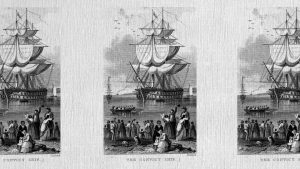
English had been rooted in the northern hemisphere for centuries – until the transportation of convicts in the 1700s
Read the full article19 July 2023
Wealds, wolds and woods
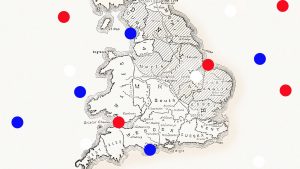
The Angles and the Saxons came to these shores across the North Sea and gave their names to the different areas they settled in
Read the full article12 July 2023
Names that live on in language

If your name becomes an adjective, you will achieve immortality; but beware, it may not be the kind that you want
Read the full article05 July 2023
Why is there a lack of respect for linguistic diversity?

Discriminating against people on the basis of how they speak is very common, despite the push for diversity in other areas
Read the full article21 June 2023
English by the Black Sea
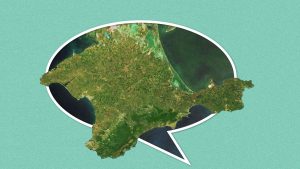
The language can be found in some unexpected places, none more so than medieval “New England” on the Crimean peninsula
Read the full article14 June 2023
A very English eccentricity

The standard form of English used in the media contains a number of grammatical oddities not found in other dialects of the language
Read the full article07 June 2023
The traces that we can’t shift

Communities can switch language – like the Irish who gradually gave up Gaelic for English – but they retain parts of the old one, too
Read the full article31 May 2023
The war of Jenkins’s book

The journalist Simon Jenkins claims the Celtic tribe and language did not exist. He is wrong – as Julius Caesar could have told him...
Read the full article24 May 2023
A language oceans apart

As Portugal sailed the world’s seas in the 15th and 16th centuries, its language spread globally – nowhere further than Macao
Read the full article17 May 2023
The rise and fall of Gaelic

Today only the Hebridean islands remain strongholds of a language that was once dominant across almost all of Scotland
Read the full article10 May 2023
Calypso, from myth to music

How a simple linguistic mistake linked a nymph from Greek mythology to the music genre that originated in the Caribbean
Read the full article03 May 2023
Dialects of the Caribbean

The English spoken by lesser-known white West Indians shows significant linguistic differences from that spoken by black West Indians
Read the full article26 April 2023
Going from Aitch to Zed

The Americans call it zee, but it is not the only letter pronounced differently in certain parts of the English- speaking world
Read the full article19 April 2023
The freedom of Old English

Why do we have words that sound the same but are spelt differently? Because, in Old English, they sounded different too
Read the full article13 April 2023
Brittany’s West Country tongue

The Breton language of northern France does not derive from Gaulish – it has its roots in migration from Devon and Cornwall
Read the full article30 March 2023
How the pagans gave us Easter

Christianity may have driven out the old religion, but old English speakers still kept part of its language intact
Read the full article23 March 2023
A big steppe for a language family
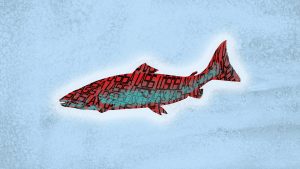
Most modern European languages are thought to have originally come from one area of the vast Eurasian Steppe
Read the full article16 March 2023
How we used ‘useless’ words

Look closely at the suffix -less and you’ll find it often attached to words like reck and ruth that have ceased to exist
Read the full article09 March 2023
How Latin lives on in Welsh

The language arrived in Wales much earlier than England thanks to links between Britons and ordinary Romans
Read the full article